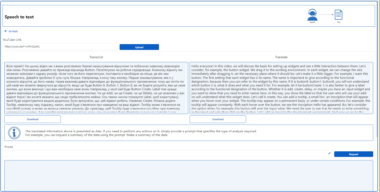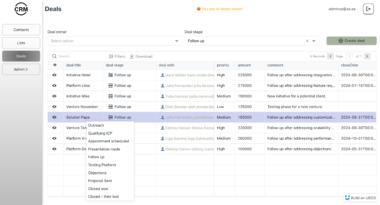dap-mcp
dap-mcp is an implementation of the Model Context Protocol (MCP) tailored for managing Debug Adapter Protocol (DAP) sessions. MCP provides a standardized framework to optimize and extend the context window of large language models, and in this project, it is used to enhance and streamline debugging workflows.
Features
- Debug Adapter Protocol Integration: Interact with debuggers using a standardized protocol.
- MCP Framework: Leverage MCP to optimize context and enhance debugging workflows.
- Rich Debugging Tools: Set, list, and remove breakpoints; control execution (continue, step in/out/next); evaluate expressions; change stack frames; and view source code.
- Flexible Configuration: Customize debugger settings, source directories, and other parameters via a JSON configuration file.
Installation
Prerequisites
- Python 3.10 or higher
- uv (optional, for running the server)
Installing and Running the Server
Install dap-mcp and its dependencies:
pip install dap-mcp
python -m dap_mcp --config config.json
# Or, if you have uv installed
uvx dap-mcp@latest --config config.json
Configuration
The project uses a JSON configuration file (e.g., .config.json) to specify debugger settings and source directories. An example configuration:
{
"type": "debugpy",
"debuggerPath": "/path/to/python/with/debugpy",
"debuggerArgs": [
"-m",
"debugpy.adapter"
],
// source directories for resolving file paths
// if you always use absolute paths, you can omit this
"sourceDirs": [
"/path/to/source/code"
],
// debugger-specific settings start here
// configurations for debugpy can be found at
// https://github.com/microsoft/debugpy/wiki/Debug-configuration-settings
// you can use "program" instead of "module" to specify the program to debug
"module": "pytest",
// the python executable to use to run the debuggee
"python": ["/path/to/python"],
"cwd": "/path/to/working/directory"
}
This configuration informs the debugger about:
- The path to the debugger executable and its arguments.
- The source directories for resolving file paths during breakpoint operations.
- Other settings (such as module, working directory, and interpreter path) necessary for launching the debuggee.
Available Debugger Types
| Type | Example Path | Example Args |
|---|---|---|
| debugpy | /usr/bin/python3 | ["-m", "debugpy.adapter"] |
| lldb | /usr/bin/lldb-dap | [] |
Available Tools
The project exposes several tools that can be invoked via the MCP framework:
- launch: Launch the debuggee program.
- set_breakpoint: Set a breakpoint at a specified file and line (with an optional condition).
- remove_breakpoint: Remove a breakpoint from a specified file and line.
- list_all_breakpoints: List all breakpoints currently set in the debugger.
- continue_execution: Continue program execution after hitting a breakpoint.
- step_in: Step into a function call.
- step_out: Step out of the current function.
- next: Step over to the next line of code.
- evaluate: Evaluate an expression in the current debugging context.
- change_frame: Switch to a different stack frame.
- view_file_around_line: View source code around a specified line (using the last provided file if none is specified).
- terminate: Terminate the debugging session.
These tools provide XML-rendered output for integration with MCP clients.
Extending with Other DAP Servers
To support additional DAP servers, you can simply add a new DAP-specific configuration class in the dap_mcp/config.py file. All DAP configurations extend from the base DAPConfig class. Each new subclass should:
- Define a unique
typevalue (using aLiteral) to act as a discriminator. - Include any additional fields or settings specific to that debugger.
For example, to add support for a hypothetical DAP server called “mydap”, you might add:
class MyDAP(DAPConfig):
type: Literal["mydap"]
# Add any additional settings for MyDAP here
customSetting: Optional[str] = Field(
None, description="A custom setting for MyDAP."
)
After creating your new configuration class, update the union type used for debugger-specific configurations by including your new class. For example:
DebuggerSpecificConfig = Annotated[Union[DebugPy, MyDAP], Field(..., discriminator="type")]
Now, when you supply a configuration JSON with "type": "mydap", it will be parsed and validated using your new MyDAP class, and your DAP server extension will be fully integrated.
Contributing
Contributions are welcome! To contribute:
- Fork the repository.
- Create a new branch for your feature or bug fix.
- Write tests and ensure all checks pass.
- Submit a pull request.
Please follow the coding guidelines and include appropriate tests with your changes.
License
This project is licensed under the AGPL-3.0 License. See the LICENSE file for details.
dap-mcp
Project Details
- KashunCheng/dap_mcp
- GNU Affero General Public License v3.0
- Last Updated: 4/14/2025
Recomended MCP Servers
MCP Server (Model Context Protocol) for turning OpenAPI specifications into a MCP Resource
PDF to Markdown conversion tool
Todoist MCP Server Extended - Enabling natural language management of todoist via Claude, MCP and todoist REST APIv2....
A macOS AppleScript MCP server

A comprehensive stdio MCP server for DataForSEO API
A zero-installation solution for AI agents to control remote macOS systems. Full desktop capabilities without extra software, using...
MCP Memory Server with DuckDB backend
This is an MCP (Model Context Protocol) Server for discovering and downloading 3D models
Browser MCP is a Model Context Provider (MCP) server that allows AI applications to control your browser

MCP for https://votars.ai

MCP server for managing Roo's custom operational modes

A powerful MCP (Model Context Protocol) server for Claude Desktop, integrating task management, SQLite, and Obsidian visualization.
 From vibe coding to vibe deployment. UBOS MCP turns ideas into infra with one message.
From vibe coding to vibe deployment. UBOS MCP turns ideas into infra with one message.






